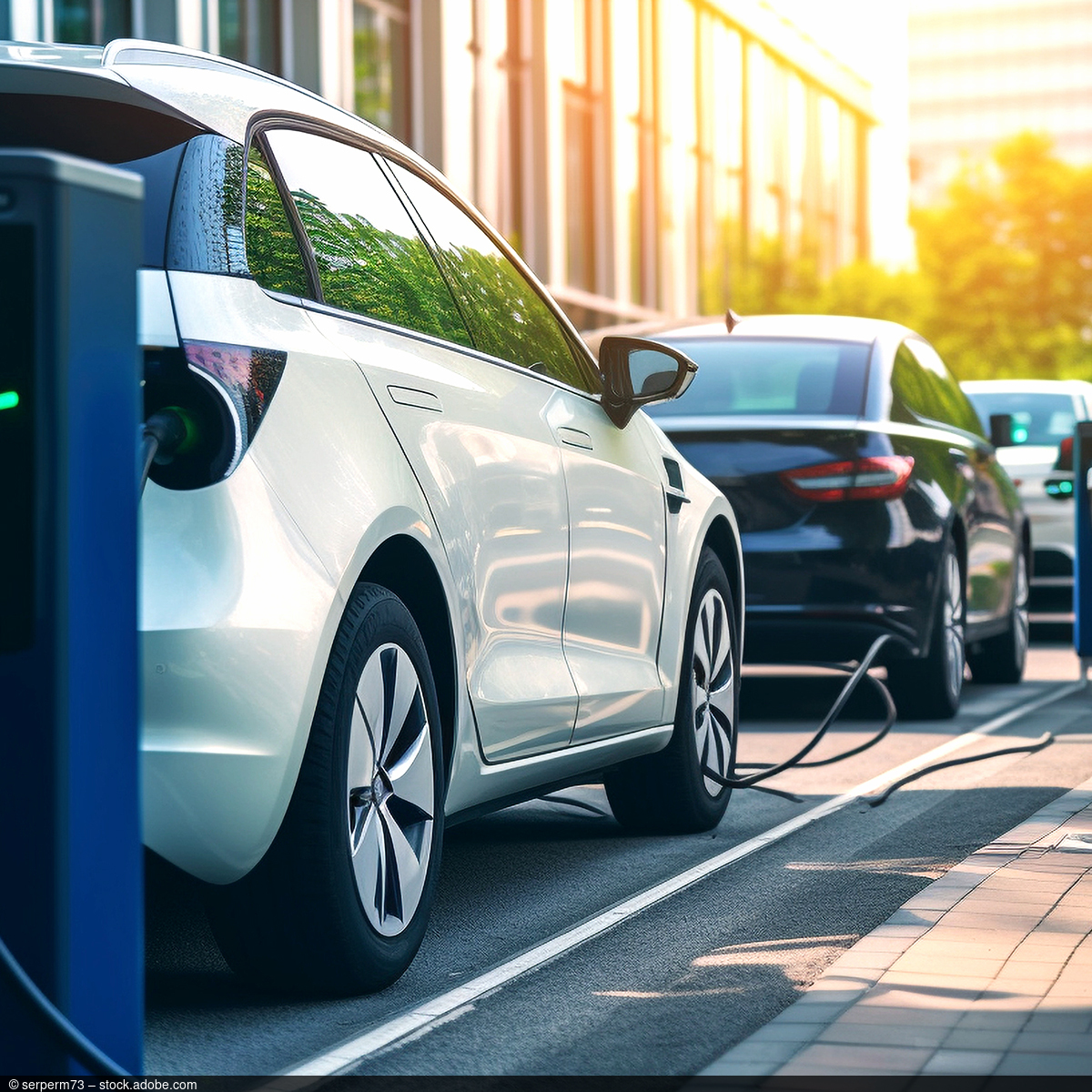High Fuel Prices Boost Electric Mobility
ResearchZEW Study on the Effects of Fuel Prices on the Charging Behaviour of Hybrid Car Drivers
Plug-in hybrids, with their combination of combustion and electric motors, are considered a transitional technology on the path to full electric mobility. Yet, drivers of these hybrids are scarcely tapping into the emission advantages over conventional combustion engines: on average, they drive only 39 per cent of their journeys in electric mode. According to a study by ZEW Mannheim and the University of Mannheim, rising fuel prices lead to more electric kilometres driven. It shows that drivers of hybrid vehicles cover the same number of kilometres at higher fuel prices as before, but reduce their fuel consumption by using the electric mode more frequently. Shorter charging times also contribute to more hybrids operating in electric mode. For their study, the researchers used a mileage tracking app with around 70,000 users, whose data was cross-referenced with official surveys.
“Drivers of hybrid vehicles respond to rising fuel prices by covering more of their journeys in electric mode. However, this doesn’t become a habit, so the environmentally friendlier usage is not lasting. Thus, the environmental advantage of plug-in hybrids is overestimated,” emphasises Eunseong Park, a researcher in ZEW’s “Environmental and Climate Economics” Unit and co-author of the study. “It’s therefore crucial for policymakers to consider the actual share of electric propulsion and emissions when assessing manufacturers’ compliance with emission regulations.”
Unutilised emission benefits
Emissions are calculated on the assumption that plug-in hybrids are used in electric mode 70 to 85 per cent of the time. In reality, this figure stands at a mere 39 per cent, resulting in twice the fuel consumption initially estimated. However, higher fuel prices encourage more frequent recharging and more kilometres driven in electric mode. If these prices increase by ten per cent, electric usage goes up by 1.6 percentage points, while the total number of kilometres driven remains the same.
Co-author Professor Laura Grigolon from the University of Mannheim adds: “The pricing mechanism effectively induces more environmentally friendly user behaviour. After all, half of the reduced emissions triggered by rising fuel prices can be attributed to this changed driving behaviour.”
Time-efficient charging infrastructure needed
However, whether drivers prefer to refuel or recharge their hybrids also depends on how much monetary value they place on their time and how long it takes to charge the battery. In Germany, this value ranges from 15 to 41 euros per hour, which is relatively high but in line with the average hourly wage of hybrid and electric car buyers at 35 euros. “Charging time is perceived as unused time, which users accordingly factor into their considerations. Therefore, financial incentives such as higher fuel prices are crucial to increase incentives to opt for charging. Additionally, investments in time-efficient charging infrastructure are needed to shift the cost-benefit ratio in favour of charging,” says co-author Kevin Remmy, PhD from the University of Mannheim.
Data basis
The dataset, consisting of approximately 1.3 million entries from around 70,000 users, comes from the “Spritmonitor” app and was collected from 2016 to 2021 for vehicles manufactured after 2016. Users enter their refuelling transactions to track actual fuel consumption and costs. Vehicle details (brand, model and year) were complemented with consumption and range data from the German Automobile Association ADAC. Fuel and electricity prices were obtained using daily updated information from comparison portals and the German Federal Statistical Office, respectively.


